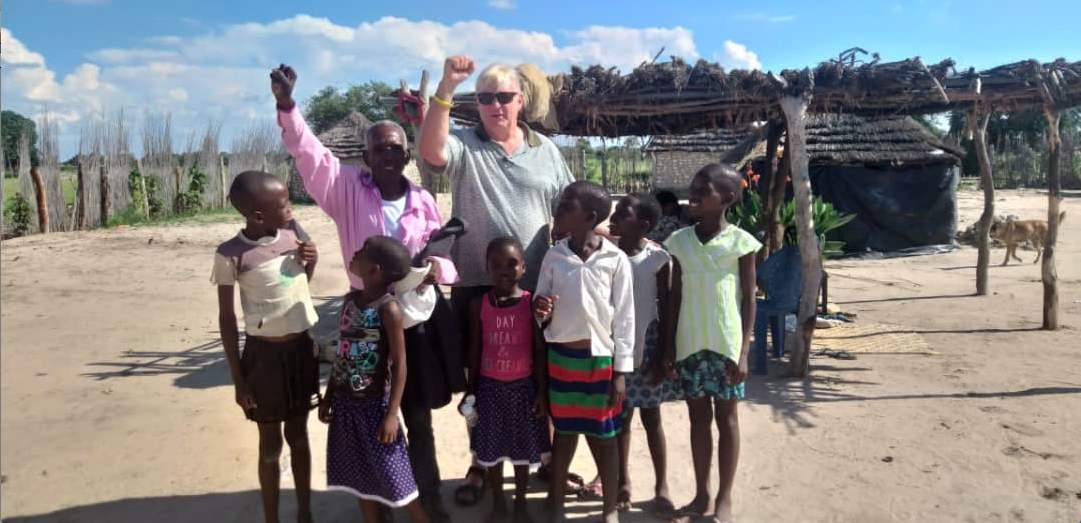Awareness and Education: Dementia in Namibia
>> Charlotte Baker (Lancaster University)
Awareness and Education: Dementia in Namibia
Founder and Director of Alzheimer Dementia Namibia (ADN) Berrie Holtzhausen spoke to us about his organisation’s work to break down the walls of stigma and discrimination surrounding dementia. ADN works to advocate for people with dementia through awareness and education, and cares for people living with dementia in a centre at Swakopmund on the central west coast of Namibia.
Dementia is an umbrella term for a range of progressive conditions that affect the brain. It damages the nerve cells in the brain so messages can’t be sent from and to the brain effectively. Dementia can affect a person at any age, but it is more commonly diagnosed in people over the age of 65 years. An estimated 2.5 million people live with dementia in sub-Saharan Africa.
The most common explanations for dementia encountered by Berrie and his team are rooted in witchcraft beliefs and religious superstition. He told us, in his own words, about a recent event in Namibia:
“You were brought up in a culture that blames misfortune, diseases and death on someone who has supernatural powers with which she/he can cause misfortune, diseases and death.
One day, four of your extended family died. Two died in hospital – one because he had a stroke and the other of HIV-AIDS not being treated. Two died in a car accident caused by reckless drivers.
This happened just before you had one of the best harvesting years in your 72 years. When the community heard of your good harvest the accusations started – accusations of you being a Wizard, someone with magical powers who caused the car accident by blinding the drivers to kill people whose “spirits” you want to use to plough, plant and harvest at night and fill up your Mahangu [crop] storeroom.
You wanted to stop these accusations and paid half of your harvest to a witchdoctor to stop the accusations, but unfortunately he confirmed that you caused the car accident and killed the two in the hospital.
The family took the letter of confirmation from the witchdoctor to the traditional court, where you were punished with a fine of 80 cattle – 20 for each death you caused under a traditional customary law, disregarding the Constitution of Namibia – a principle that ADN is testing in the Court of the Common Law.
Except for the good harvest, which you achieved by hard work, and the five cattle you own, you have nothing else. Hopefully this coming season will again be a good one. However, while you are waiting for the rain to start ploughing the traditional police and the Hompa [king] arrive at your homestead and confiscate your five cattle as the first payment of your fine. He slaughters them, sells the meat and divides it among the bereaved families, to ‘wipe away the tears of they who are crying’.
Overnight you are a poor man, who can no longer provide for your family without oxen to plough, your transport and the means of extra income during the ploughing season. I can’t imagine a more severe human rights violation against someone and of course one of the reasons of poverty in Namibia”.
The work of the ADN team is not without risk. On 17 November 2019, they were attacked by a mob of 70 angry people while trying to explain to them why the four people died, and that the signs of a so-called witch/wizard are signs and symptoms of a disease called dementia. Berrie explains: “Our team just escaped with our lives and the life of the ‘wizard’. We relocated him to our Dementia Care Farm, 800km from his village and family, where we are caring for him, while we are waiting for the court case to start in the Magistrates Court”.
He makes clear that ADN does not want the belief in witchcraft to be wiped from the cultural mindset of Namibia or Africa, but explains that the organisation makes a distinction between witchcraft beliefs that play a role in structuring daily life and the harmful practices that result from beliefs in witchcraft. “Because ageing is the number one risk for people to develop dementia, because the signs and symptoms of dementia correlate with signs of elderly people being accused of being a witch or wizard, and because most people being accused as witches and wizards are also living with dementia, ADN’s experience is that in many cases, these harmful practices can be explained through awareness and education about dementia all over sub-Saharan Africa”.

